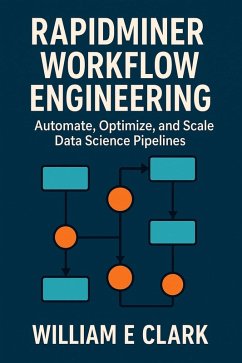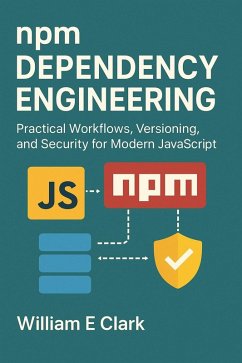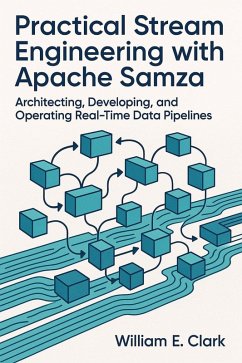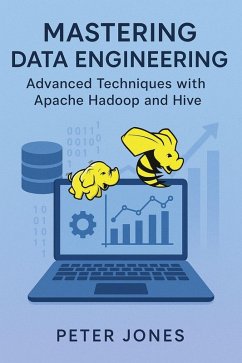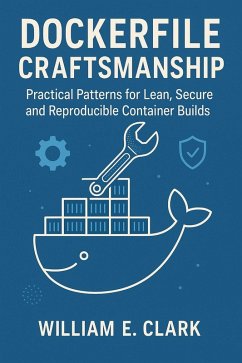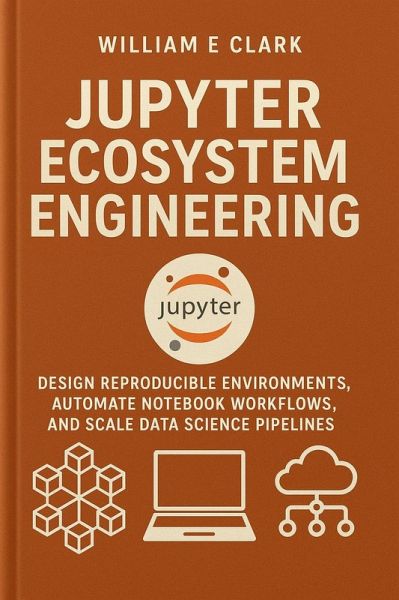
Jupyter Ecosystem Engineering: Design Reproducible Environments, Automate Notebook Workflows, and Scale Data Science Pipelines (eBook, ePUB)

PAYBACK Punkte
0 °P sammeln!
Jupyter Ecosystem Engineering: Design Reproducible Environments, Automate Notebook Workflows, and Scale Data Science Pipelines is a practical, authoritative guide to building resilient, reproducible interactive-computing platforms. Tracing the project's evolution from IPython to the modern, polyglot Jupyter ecosystem, this book demystifies core architecture-kernels, the notebook format, messaging protocols, and extension systems-so readers can design and customize environments that meet real-world needs. Clear explanations and hands-on patterns equip both newcomers and advanced practitioners t...
Jupyter Ecosystem Engineering: Design Reproducible Environments, Automate Notebook Workflows, and Scale Data Science Pipelines is a practical, authoritative guide to building resilient, reproducible interactive-computing platforms. Tracing the project's evolution from IPython to the modern, polyglot Jupyter ecosystem, this book demystifies core architecture-kernels, the notebook format, messaging protocols, and extension systems-so readers can design and customize environments that meet real-world needs. Clear explanations and hands-on patterns equip both newcomers and advanced practitioners to create reproducible development environments and integrate them into existing toolchains.
Beyond fundamentals, the book walks through deployment strategies and automated workflows that power modern data science: local setups, containerized development, orchestrated multi-user clusters, and hybrid cloud models. It covers reproducibility best practices, CI/CD for notebooks, versioning and collaboration workflows, and the practicalities of GPU integration, model management, and visualization pipelines for machine learning. Each chapter emphasizes automation and observability, helping teams move from ad hoc notebooks to production-grade data pipelines and repeatable experiments.
For organizations adopting Jupyter at scale, the book addresses enterprise concerns-security, data governance, compliance, monitoring, and the design of SaaS and internal notebook platforms-while highlighting patterns for maintainability and cost control. It also surveys emerging trends such as AI-augmented notebooks, edge and federated deployments, and evolving community standards, giving readers a forward-looking playbook. Whether you are an engineer, researcher, educator, or IT leader, this book provides the strategies and reference patterns to engineer robust Jupyter ecosystems that scale.
Beyond fundamentals, the book walks through deployment strategies and automated workflows that power modern data science: local setups, containerized development, orchestrated multi-user clusters, and hybrid cloud models. It covers reproducibility best practices, CI/CD for notebooks, versioning and collaboration workflows, and the practicalities of GPU integration, model management, and visualization pipelines for machine learning. Each chapter emphasizes automation and observability, helping teams move from ad hoc notebooks to production-grade data pipelines and repeatable experiments.
For organizations adopting Jupyter at scale, the book addresses enterprise concerns-security, data governance, compliance, monitoring, and the design of SaaS and internal notebook platforms-while highlighting patterns for maintainability and cost control. It also surveys emerging trends such as AI-augmented notebooks, edge and federated deployments, and evolving community standards, giving readers a forward-looking playbook. Whether you are an engineer, researcher, educator, or IT leader, this book provides the strategies and reference patterns to engineer robust Jupyter ecosystems that scale.
Dieser Download kann aus rechtlichen Gründen nur mit Rechnungsadresse in A, B, CY, CZ, D, DK, EW, E, FIN, F, GR, H, IRL, I, LT, L, LR, M, NL, PL, P, R, S, SLO, SK ausgeliefert werden.




